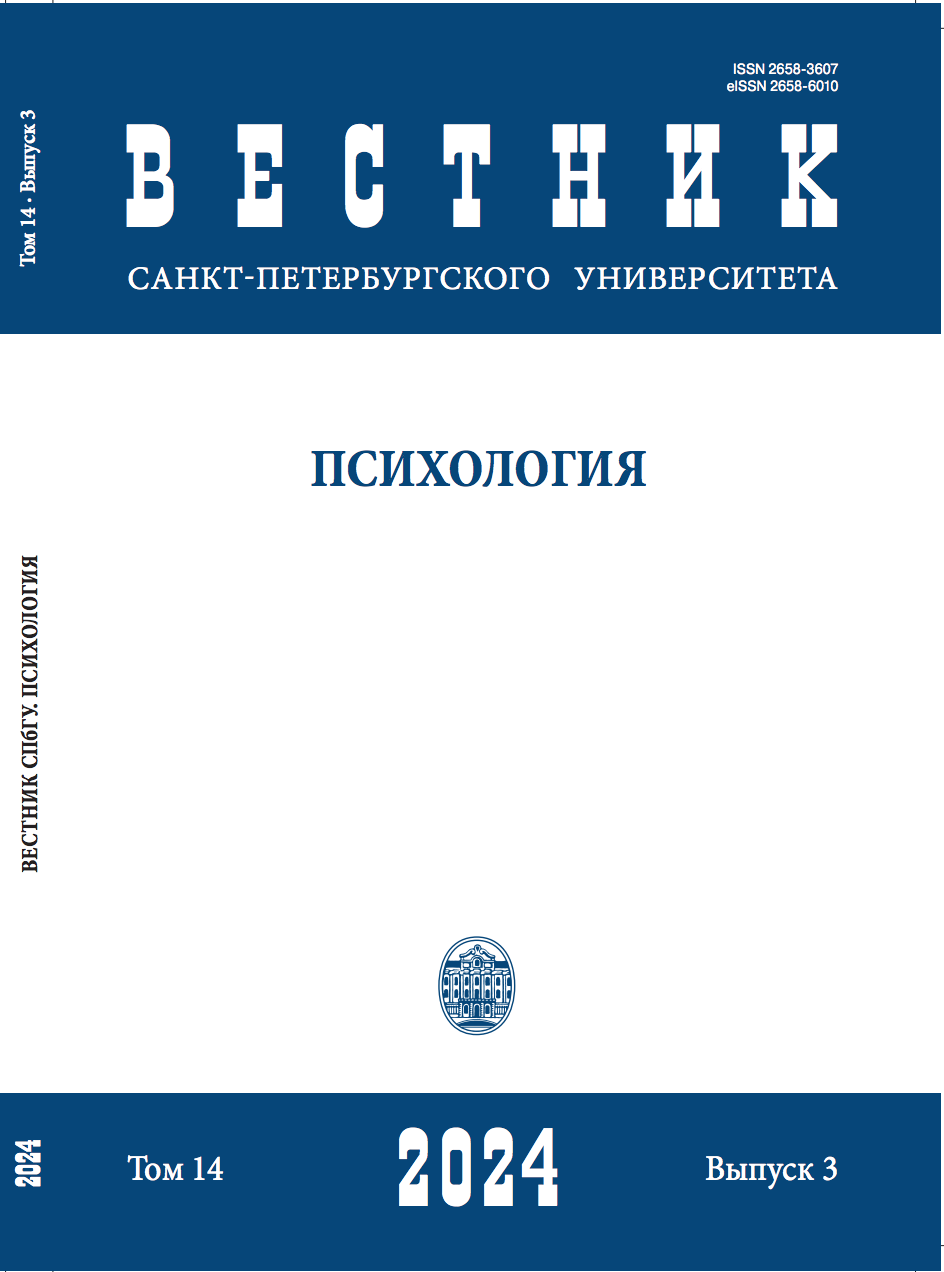Mindfulness as a factor of personal stability in a changing world.
DOI:
https://doi.org/10.21638/spbu16.2024.302Abstract
The everyday world, the sociocultural reality surrounding a person and its conceptualizations can nowadays change several times during the life of one generation. At the same time, changes occurring in reality, in ideas about it and in ideas about the changes themselves are often not synchronized, creating gaps between objective reality and its subjective interpretations. The most constructive response to the challenges of a changing world is mindfulness as a cultural practice and a special state of consciousness. Today, there are two leading approaches to the phenomenon of mindfulness, one of which belongs to the Eastern philosophical and religious tradition, and the other to the Western psychological tradition. A deeper analysis reveals the diversity of facets and interpretations of mindfulness in modern research. Awareness as a complex socio-psychological phenomenon allows us to record the processes of transformation of the modern world into a new state. The observed increase in awareness (and mindfulness) in everyday life and the increased interest in this phenomenon among scientists represents a spontaneous coping strategy in a situation of turbulence. Along with this, the thoughtful observer reveals the antinomic nature of the transformations taking place in the world, where the fashion for mindfulness is accompanied by the opposite process — mindlessness, or unawareness. Lack of mindfulness is associated with behavioral automatisms and schematisms of consciousness, with the absence of doubts about the legality and adequacy of the categories describing reality. The availability of alternative modes of interpretation, sensitivity to context and to the fluidity of change can transform mindlessness into mindfulness. One of the cultural practices that foster mindfulness and awareness today is the Stoicism movement. In methodological terms, mindfulness refers to those categories that correspond to transdisciplinary approaches and tasks of integrating psychological knowledge. This integration takes place both at the interdisciplinary level and within psychology, where the development of mindfulness unites various psychological approaches and practices and allows us to bridge the notorious gap between the academy and applied fields of knowledge.
Keywords:
methodology, mindfulness, person, transdisciplinary approach, stoicism
Downloads
References
Downloads
Published
How to Cite
Issue
Section
License
Articles of "Vestnik of Saint Petersburg University. Psychology" are open access distributed under the terms of the License Agreement with Saint Petersburg State University, which permits to the authors unrestricted distribution and self-archiving free of charge.




